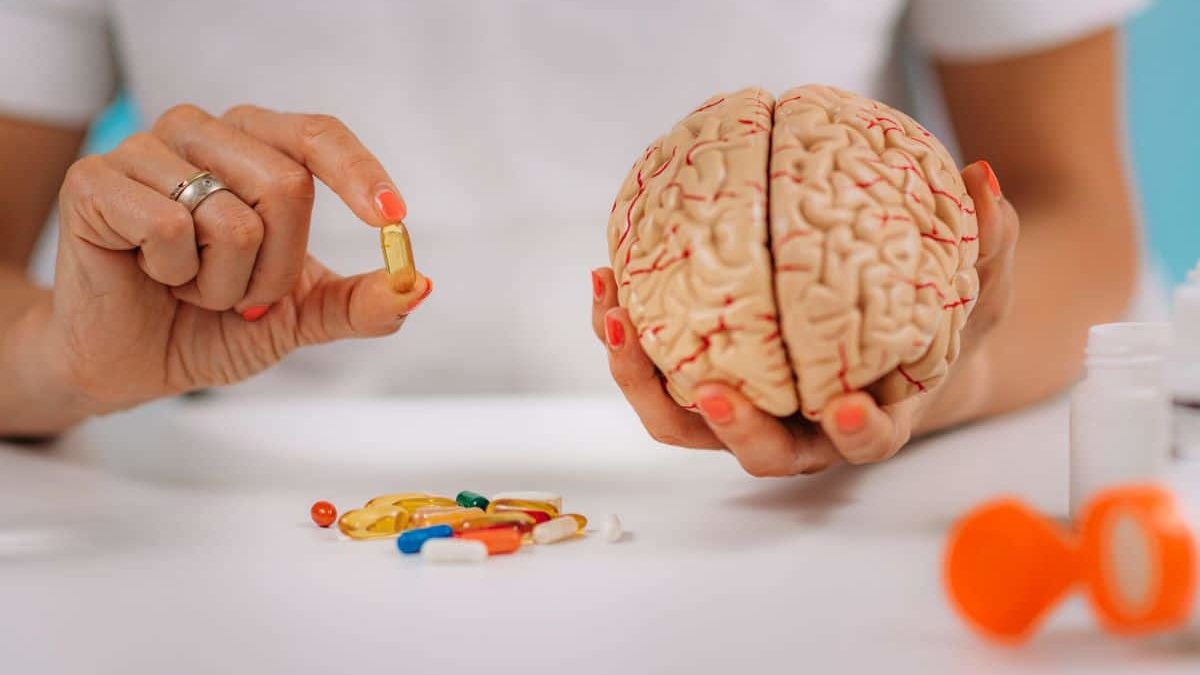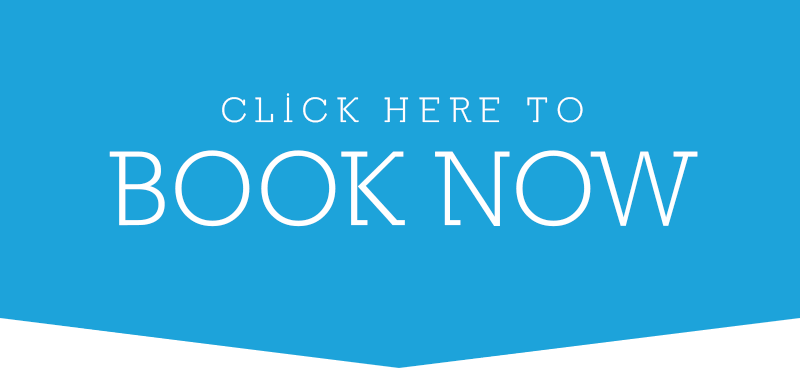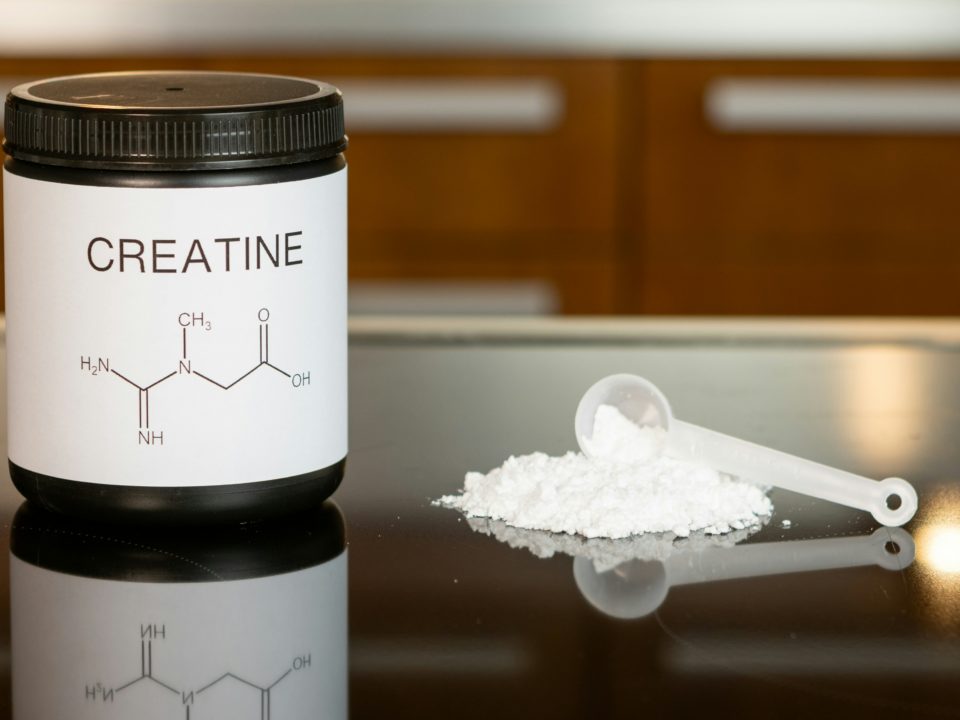
Concussions in the workplace
July 16, 2024Recovering from a Concussion: The First 48 Hours
November 18, 2024At Melbourne Headache and Concussion Group, we’re committed to providing holistic care for patients managing concussion recovery.
While medical treatment and rehabilitation are crucial, certain supplements can support the brain’s healing process. In this blog, we’ll explore some promising supplements, including magnesium L-threonate, creatine, glutathione, and curcumin, that can assist in concussion recovery.
1. Magnesium L-Threonate: Enhancing Cognitive Recovery
Magnesium L-threonate is unique because it effectively crosses the blood-brain barrier, directly supporting cognitive function and neural repair.
Research has shown that this form of magnesium can improve memory, cognitive function, and reduce the frequency and intensity of migraines. Magnesium L-threonate also helps reduce inflammation and oxidative stress, both of which are elevated after a concussion, potentially aiding in faster recovery and reducing persistent symptoms such as brain fog, headaches, and mental fatigue.
How to use: Magnesium L-threonate is available as a supplement and should be taken based on recommended dosages, typically under the guidance of a healthcare provider.
2. Creatine: Boosting Cellular Energy
Creatine is well-known for enhancing physical performance, but it also plays a critical role in brain health. Concussions can impair the brain’s ability to produce energy, which often leads to fatigue and cognitive difficulties.
Creatine helps restore energy at the cellular level, making it particularly useful for supporting brain cells after a concussion. This energy boost can improve mental clarity, reduce fatigue, and aid in quicker recovery. Some studies have even shown that creatine supplementation may reduce the severity and duration of post-concussion symptoms.
How to use: Creatine can be taken as a daily supplement, usually in powder or capsule form. It is also naturally found in meat and fish.
3. Medium-Chain Triglycerides (MCT): Fueling Brain Recovery
MCT oil, derived from coconut oil, is a unique source of energy for the brain. After a concussion, the brain may have difficulty using glucose (its primary fuel) efficiently. MCTs convert into ketones, which the brain can use as an alternative energy source, bypassing this dysfunction.
This increased availability of energy to the brain may help with cognitive function, mental clarity, and overall recovery. MCT oil is also known to support anti-inflammatory processes, which can further reduce the symptoms of headaches and concussions.
How to use: MCT oil can be added to foods or beverages, such as smoothies or coffee, and is available in liquid form.
4. N-Acetylcysteine (NAC): Reducing Oxidative Stress
N-Acetylcysteine (NAC) is a powerful antioxidant that helps boost levels of glutathione, the body’s master antioxidant. Oxidative stress increases significantly after a concussion, leading to cellular damage in the brain. NAC works by reducing this oxidative stress, supporting faster and more efficient recovery.
How to use: NAC supplements are widely available and can be taken under medical guidance, especially for those recovering from head injuries.
5. Glutathione: The Master Antioxidant
Glutathione is one of the most powerful antioxidants produced naturally in the body. It plays a critical role in detoxifying cells and protecting against oxidative damage. After a concussion or during episodes of chronic headaches, glutathione levels can become depleted, leading to prolonged recovery and more severe symptoms.
Supplementing with glutathione can help protect brain cells from further damage, reduce inflammation, and support faster recovery.
How to use: Glutathione supplements come in oral, intravenous, or liposomal forms, and it’s best to consult with a healthcare provider for the most effective form and dosage.
6. CoQ10: Restoring Energy at the Cellular Level
Coenzyme Q10 (CoQ10) is a naturally occurring antioxidant that supports mitochondrial function, which is essential for producing cellular energy. After a concussion, the brain’s ability to produce energy efficiently can be compromised, leading to symptoms like headaches, cognitive fatigue, and prolonged recovery.
CoQ10 supplementation may help restore this energy production, reduce oxidative stress, and improve overall brain function. Some studies have shown that CoQ10 may reduce the frequency and severity of migraines and help with cognitive recovery after a concussion.
How to use: CoQ10 is available in capsule or liquid form and can be taken daily. It’s also found in small amounts in foods like meat, fish, and nuts.
7. Omega-3 Fatty Acids: Fighting Inflammation
Omega-3s DHA (docosahexaenoic acid) help to reduce neuroinflammation, support brain cell repair, and improve cognitive function. For people experiencing headaches, omega-3s may reduce the intensity and frequency of migraines. After a concussion, brain inflammation can prolong symptoms and delay recovery. Supplementing with omega-3s early in recovery from a concussion can help support overall brain health and healing.
How to use: Omega-3 supplements are available as fish oil or algae oil. They can also be incorporated into your diet through fatty fish like salmon, mackerel, and sardines.
8. Curcumin: A Natural Anti-Inflammatory Powerhouse
Curcumin, the active ingredient in turmeric, is a potent anti-inflammatory and antioxidant. In the context of concussion recovery and headache management, curcumin can help reduce neuroinflammation, oxidative stress, and even the occurrence of migraines.
Additionally, it can help protect brain cells from further damage after a concussion and speed up the healing process by modulating inflammatory pathways.
How to use: Curcumin supplements are most effective when combined with piperine (found in black pepper) to enhance absorption. Look for supplements that specifically address this for optimal results.
9. Taurine: Supporting Neuroprotection and Brain Recovery
Taurine is an amino acid that plays a crucial role in brain function and overall neurological health. It acts as a neuromodulator and antioxidant.
Research suggests that taurine may aid in stabilizing cell membranes, regulating calcium levels, and supporting neurotransmitter function, all of which are critical for brain recovery. It also has neuroprotective properties, which may help reduce the risk of prolonged post-concussion symptoms, such as headaches, cognitive disturbances, and mood changes.
How to Use: Taurine is available as a supplement in powder or capsule form. It can also be found in foods like meat, fish, and dairy.
Conclusion
Incorporating the right supplements into your recovery plan can make a significant difference in managing headaches and concussions. Supplements like magnesium L-threonate, creatine, MCT oil, NAC, glutathione, CoQ10, omega-3s, and curcumin all offer unique benefits that support brain health, reduce inflammation, and enhance cellular repair. However, it’s important to consult with a healthcare professional before beginning any new supplementation, as individual needs and conditions vary.
At the Melbourne Headache and Concussion Group, we are committed to offering a comprehensive approach to concussion care, including expert guidance on rehabilitation and dietary factors that can enhance your recovery.



